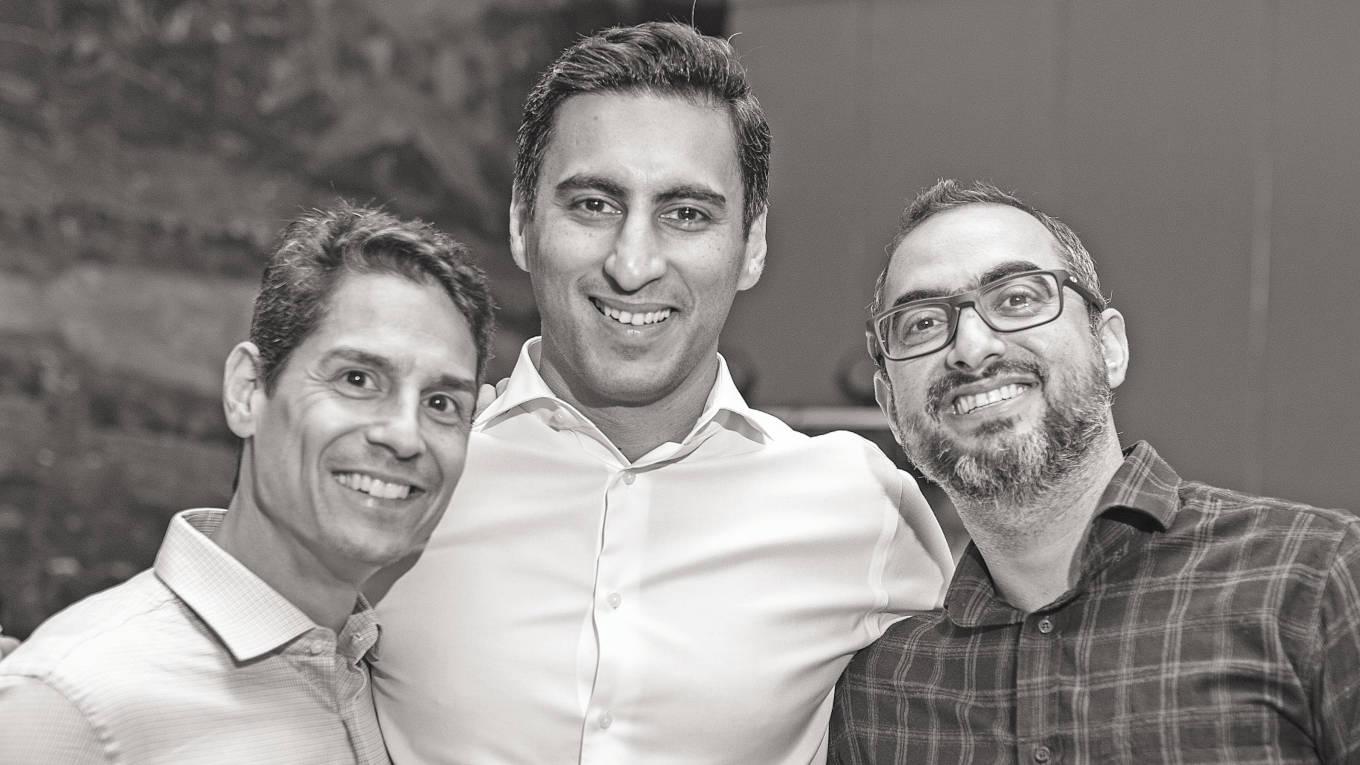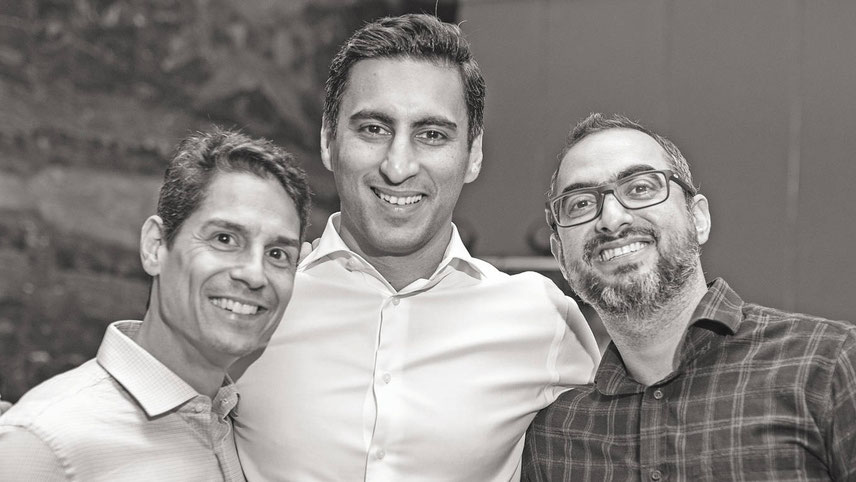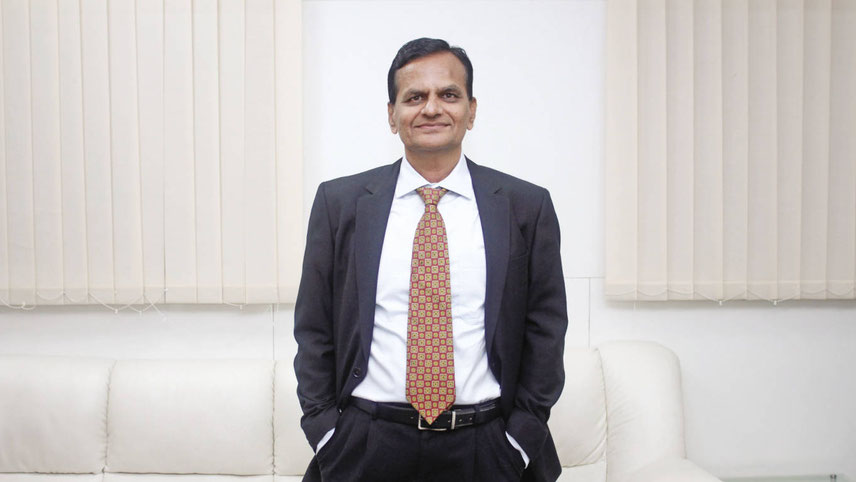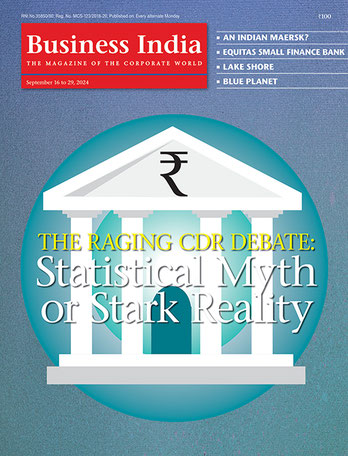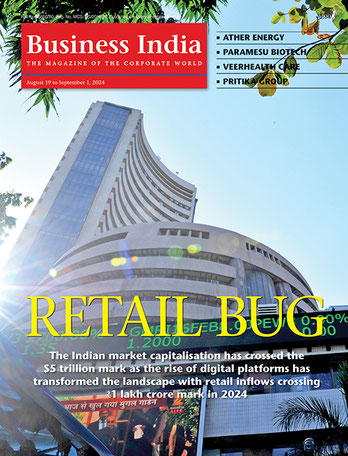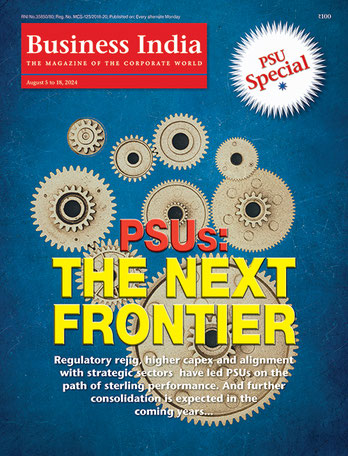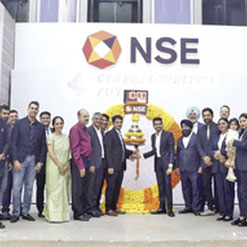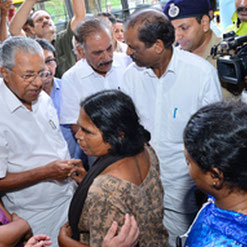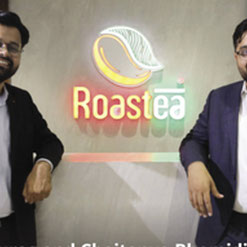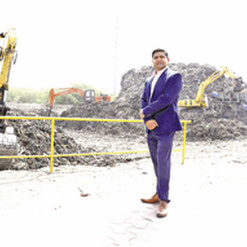-
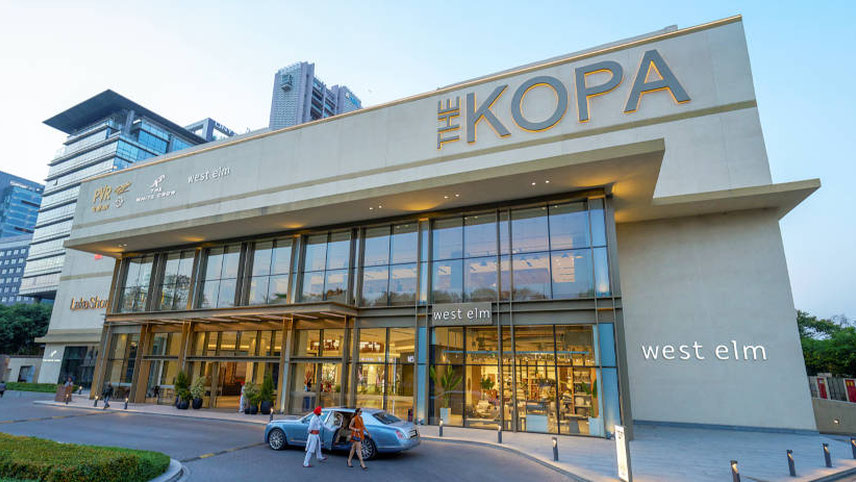
The KOPA in Pune: a bespoke social destination
“I have known them since they started around 12 years ago, and they have built Lake Shore into a remarkable platform that has far exceeded my expectations. Their deep knowledge and capability in creating retail assets that truly stand out. What sets them apart is their exceptional skill in acquiring and transforming assets into high-quality properties, thanks to their superior market insight. While others may focus on greenfield developments, Lake Shore has remained entirely retail-oriented, with most of their growth driven by strategic acquisitions. They are highly entrepreneurial, with a keen understanding of market dynamics, enabling them to create world-class assets that are perfectly tailored to the markets they serve,” observes Anuj Puri, Chairman, ANAROCK Property Consultants.
‘No one-size-fits-all’
Lake Shore made its first fund investment in 2018 in Vasai, north of Mumbai in a township in the Palghar district of Maharashtra, where the Capital Mall is today the ‘go-to’ destination for the 17-18 lakh residents of Vasai, Nalasopara, and Virar. Why start with Vasai of all places, one may ask. That’s because Lake Shore’s approach to retail real estate avoids a one-size-fits-all strategy. Instead, the company analyses micro-markets to identify underserved consumer bases and tailors developments to match the opportunity of that specific area.
Recognising an area devoid of any good-quality organised retail destination, Lake Shore developed the Capital Mall along with local partner The Swastik Group, to serve a consumer base that previously had limited organised retail options. This strategy enabled Lake Shore to provide an upscale, international-quality mall that improved the local environment and uplifted the neighbouring area as well.
According to the Lake Shore team, the key to creating a vibrant retail experience is not just about attracting brands. It begins with fundamentals: layout, customer service, parking, and ease of access. Lake Shore will only build Class-A retail experiences, and Vasai is a prime example. “When we bought the land, we did a lot of primary research. We determined that customers were travelling to far away places like Malad, Goregaon, and Andheri to shop. There was definitely a captive market in Vasai and an opportunity to build a great asset for the area,” adds Karim Merchant, Director and CIO of Lake Shore.
Merchant adds: “You go to The Capital in Vasai, and the overall feel is no different to any of the best malls in Mumbai. The brand mix and certain specifications may vary, but every consumer that enters a Lake Shore property should have an international quality experience. But because the retail industry is relatively young and the cities are growing so fast, there really are very few such assets across India.”
After Vasai, Lake Shore identified an opportunity in Gurugram and, in 2019, entered into a joint venture agreement to invest in a retail project with the Reach Group. This led to the development of ‘Airia’, a vibrant mixed-use space blending retail and leisure with a large outdoor precinct that stands out from most other enclosed malls in the Delhi-NCR region. Spread across 14 acres in Gurugram, Airia was developed in phases: Phase I includes around 450,000 sq ft, which will be expanded in Phase II to a total of 750,000 sq ft of retail area.
-
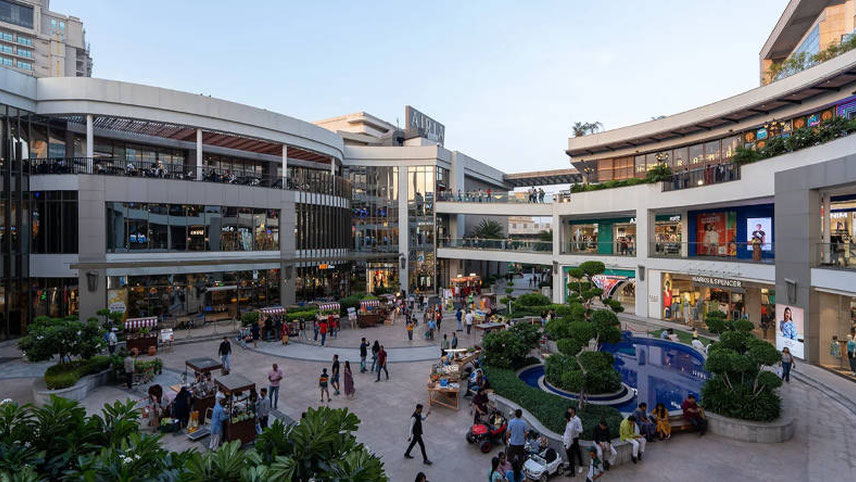
Airia: a vibrant mixed-use space blending retail and leisure
Lake Shore then acquired a property in Koregaon Park, Pune, later in 2019 and developed the premium ‘KOPA’ mall, which was launched towards the end of 2023. A massive redevelopment of an older asset, KOPA is a bespoke social destination that was created specifically for its unique location – the heart of Koregaon Park. This one-of-a-kind retail experience comprises shops, restaurants, and a high-end cinema spread over three levels of finely appointed interiors. The mall is surrounded by Pune’s most affluent residential neighbourhood.
“Pune, like other Indian cities, is experiencing a surge in luxury demand. Recognising this, we saw the potential to create something unique. The site, previously a mall, needed a complete renovation in order to create a one-of-a-kind product that would distinguish itself from nearby malls. We began by identifying the target consumer, then tailored the product to their needs,” adds Puri. This consumer-centric approach is key to its execution, as the company identifies the opportunity first and then develops a plan to deliver the perfect solution for the consumer.
Another major deal that Lake Shore clinched was during Covid – a deal with Singapore sovereign wealth fund GIC and Ashwin Sheth to acquire 100 per cent of Viviana Mall in Thane. This was a marquee investment, which remains the largest acquisition of a single retail asset to date in India. One of the biggest retail assets in Mumbai, Lake Shore identified an opportunity to reimagine the tenant mix and composition, as well as significantly upgrade the asset with a refurbishment plan.
“Over the last two to three years, we have let over 35 per cent of the total mall, which has given us an opportunity to make fundamental changes that enhance the customer offering. Given that Thane as a market has evolved over the years, we felt the asset was ready to introduce international brands to the consumer that were previously not available in that region of the Mumbai metropolitan area,” adds Puri.
Community hubs
“The mall really plays a very different role in the Indian ecosystem,” says Puri. “It’s more a place for people to spend time and enjoy themselves. It’s their social outing rather than just a place to shop.” This trend is likely to continue as urbanisation accelerates in India, with more people migrating to cities for better opportunities. Malls will play a crucial role in providing much-needed social spaces in these dense environments, and experts see a sharp increase in the demand for shopping malls over the next few years.
-
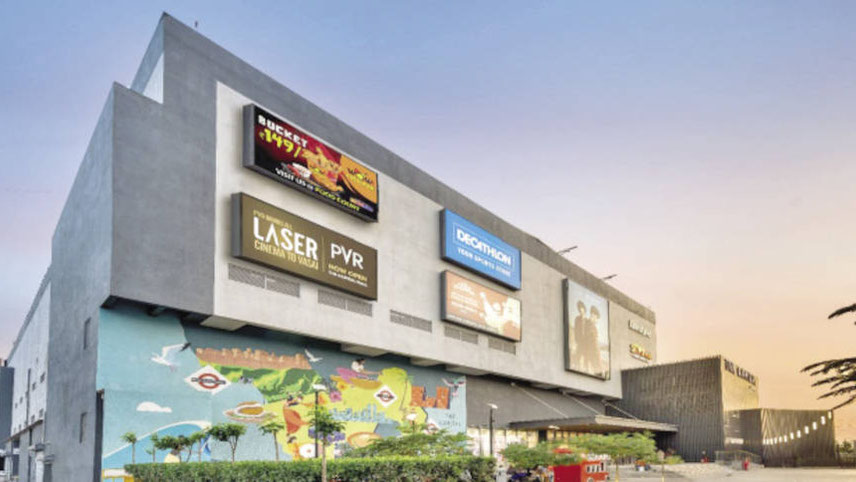
The Capital: providing an upscale, world class mall experience to Vasai
Today, around 60 per cent of India’s GDP is driven by domestic consumption, much of which is fuelled by its millennial and Gen Z population of approximately 700 million. This has created a $264 billion market opportunity in discretionary retail, which is expected to grow at 15 per cent CAGR over FY22-25. The rising preference for premium and branded goods among the Gen Z population has seen international brands reinvigorating their presence in one of the fastest-growing economies of the world.
More than 12 global brands from across retail categories have entered India in the last one to two years. While F&B brands such as Tim Hortons, Popeyes, and Pret-A-Manger have entered India, seeing its favourable demographics and positive economic conditions, retail chains such as Reliance Retail and Aditya Birla Fashion are forming partnerships with global brands to bring them to India.
If one looks at KOPA mall in Pune, it has brought incredible brands to the city, including West Elm, Paul, Hugo Boss, True Religion, and Nappa Dori. Many of these have been introduced to the city for the first time, claims Puri. Similarly, over the last two to three years, Lake Shore has introduced nearly 40 new brands to the Viviana mall in Thane. The robust growth in the residential market of Thane in recent years speaks to the success story of Viviana, and the potential that the suburb continues to offer will only improve.
What is also driving consumption is the urbanisation of more and more small cities. As a result, even smaller cities are emerging as vibrant markets for mall developers, mirroring the consumption patterns seen in Tier-I or major metropolitan centres. India’s steady wealth growth charts a divergent and promising trajectory. The rising middle class in the country has a desire to shop like their peers across the world and see global standards in the retail experience throughout Indian cities.
With the advent of multiple shopping centres in India, retailer preference for Grade-A assets is also at an all-time high, as they continue to bustle with footfalls and remain hotspots for new retailer entry and expansion. According to Knight Frank, most of the new shopping centre supply in 2023 belonged to the Grade-A category in cities such as the NCR, Mumbai, Bengaluru, and Ahmedabad.
The shift in thinking — not just on commerce but on the long-term focus of creating the ‘right’ space for consumers — is the driving force behind Lake Shore’s vision of redefining the retail experience and transforming urban spaces. What brings this vision to reality is the vertical integration of the entire mall lifecycle — conceptualisation, design, construction, leasing, and operations — being housed under a single roof.
-
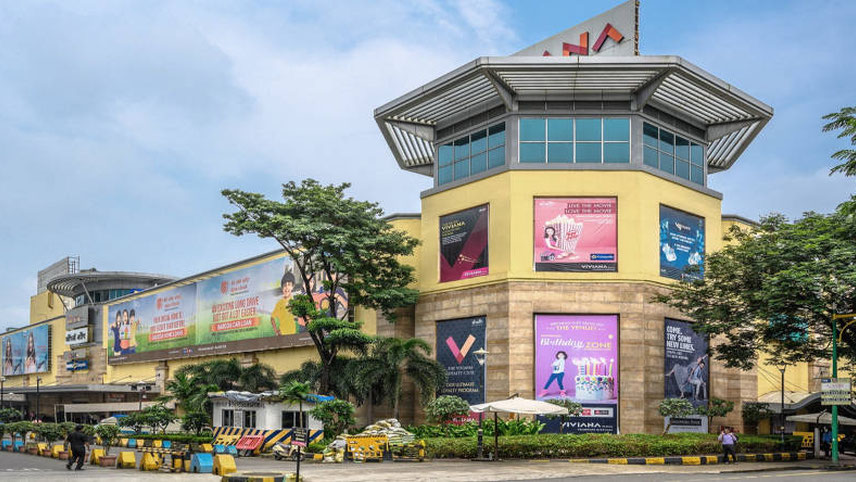
Viviana Mall in Thane: One of the biggest retail assets in Mumbai
This puts Lake Shore ahead of the curve in delivering an entire Grade-A urban consumption centre end-to-end. “Residential developers typically complete a project and move on, but with retail real estate, as in hospitality, the responsibility doesn’t end there. As owners and operators, it’s crucial for us to continually enhance the consumer experience,” says Puri.
For Lake Shore, this involves organising events and shows, supported by a dedicated division focused on market research and event production. They identify consumer preferences and then curate activities for kids as well as adults, including concerts, comedy shows, and festivals. “We have a specialised team that handles event planning, ticketing, and performance marketing to meet these needs,” says Puri.
“Lake Shore’s portfolio welcomes about 25 million average annual consumer footfalls across its assets, generating more than Rs3,000 crore of annual revenue. Post Covid, Viviana Mall has seen a stellar 30 per cent growth in income and sales, and most assets under Lake Shore’s portfolio are running at 99 per cent occupancy,” adds Puri.
The firm believes that India is just at the tip of the iceberg in terms of the potential for developing retail spaces. Lake Shore’s focus is really on the next decade of growth, given the appetite for new assets from domestic and international retailers, which reflects customer demand from the Indian consumer.
